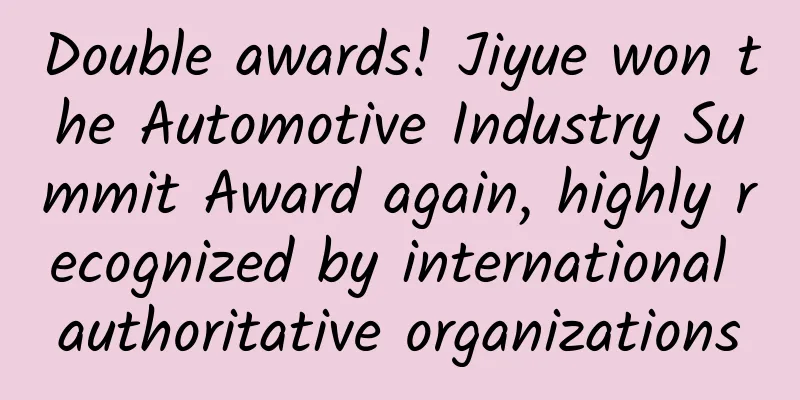Are movies adapted from novels necessarily inferior to the originals? Here are some counter-examples!

|
In 1999, young Neo in "The Matrix" faced the dilemma of the red and blue pills for the first time. It was up to him to choose whether to face the cruel truth or the beautiful illusion created by self-deception. Before this, Polish science fiction writer Stanisław Herman Lem had already had a similar setting in his 1971 novel Kongres Futurologiczny. Lem is not only a science fiction master, but also a master of satire. The detailed depiction of the utopian illusion of the future in the novel can be said to be "prosperous", and the portrayal of the frail human nature is very incisive. The wild imagination and eccentric language art are still very interesting today, half a century later. Compared to the original novel, the 2013 film of the same name has some deviations in narrative, but still shares the setting and existential anxiety of the original novel. It is less absurd, but also adds a touch of fantasy. Robin Wright's acting in the film almost overflows the screen, and the animation chapter in the second half is even more rare. Stills from "Futurology Conference". © STUDIOCANAL ALL RIGHTS RESERVED There is actually another more famous adaptation based on Lem's work, which is "Solaris" (Solaris, also translated as "Solarius") directed by Tarkovsky, but I will not elaborate on it here. "dune" —Franklin Patrick Herbert, Jr. As adaptations of science fiction novels, Villeneuve's two "Dune" films in recent years have undoubtedly surpassed "The Conversation" in terms of popularity, but what we are going to talk about here is the version filmed by David Lynch in 1984. In 1965, after being rejected by more than 20 publishing houses, the novel Dune was finally published by Chilton Books (a printing house famous for its automobile repair manuals). The following year, it won both the Nebula and Hugo Awards and is regarded as one of the most influential science fiction works. However, the film and television adaptation of Dune has been full of twists and turns. Jacobs, the director of Rise of the Planet of the Apes, Jodorowsky, the director of The Holy Mountain, and Ridley Scott, the director of Alien, have all tried to adapt Dune, but all failed. Until David Lynch took over the mantle. When Lynch was filming "Dune", he built 16 studios and 80 sets, and mobilized 1,700 staff members and more than 20,000 extras. The leading actor was Kyle MacLachlan, who later became famous in "Twin Peaks", and Brian Eno joined in the soundtrack. Even today, it is still a big production. Still from Dune. © filmthreat However, the film received mostly negative reviews, such as "an incomprehensible, ugly, unorganized, meaningless journey", "the worst film of the year"... It cost $40 million to make, but the box office revenue was only over $30 million. The double failure of reviews and box office made the director himself unwilling to discuss the film, saying that he had "erased his memory of that time." As for why it failed, on the one hand, the huge structure and large amount of information in the original work itself put forward extremely demanding requirements for adaptation. On the other hand, Lynch originally expected the length of the film after editing to be nearly three hours, but the investors decided to use the standard two-hour editing. In order to shorten the length, simplified new scenes were re-shot in the later stage to replace the original longer length. A large number of voice-overs and narrations replaced the original shots , and the film was cut into pieces. Although the subsequent TV version was also three hours long, it still used concept art photos to explain the scenes. Lynch simply signed the director column of the TV version with the pseudonym "Alan Smithee". This was a move by the Directors Guild of America at the time. When a director left the film midway or was dissatisfied with the film, they would use this pseudonym instead of their real name. This pseudonym was officially discontinued in 2000. But in fact, positive reviews of Lynch's Dune are not uncommon. "It failed as a commercial enterprise, but it still successfully captured and refined the most obscure and important content of the original work", "David Lynch's surreal talent brought some fun to it"... Before his death, the original author Herbert said that he was very satisfied with Lynch's Dune. Whether it is good or bad, you can only see it for yourself. 1984 —George Orwell “Who controls the past controls the present, and who controls the present controls the future.” The movie 1984, which was released in 1984 at the same time as Dune, is based on George Orwell's famous dystopian novel 1984. The film was shot in London and its surrounding areas from April to June 1984, which is also the background time and space of the novel. This was obviously intentional, and it is said that in order to be released that year, the crew had frequently rushed the progress. They hoped to keep "1984" in the present of 1984, just as Orwell never said that what he described in the book was the future. In the film, the male protagonist Winston Smith, played by veteran actor John Hurt, is skinny, with a slender neck and a wrinkled and tired face. His expression is silent and sincere. He is simply the perfect Smith. It was also the final film for Richard Burton (who played O'Brien in the film), having played Antony in 1963's Cleopatra. Still from 1984. © watershed Although it was filmed 40 years ago, the film perfectly reproduces the era described in the original book, with brainwashing images played in a loop, lies and interrogations numbing people, and Big Brother's gaze everywhere. In order to present a special cold visual effect, the director wanted to present the entire film in black and white, but was opposed by the investors. Finally, they used a special processing technique called " Bleach bypass " to create a special effect that looks a bit faded. In fact, in a sense, they are also the promoters of this technology. Special visual effects are favored by many directors, and movies that also use this technology include but are not limited to "Saving Private Ryan", "Fight Club" and "Minority Report". Motorcycle Diaries — Ernesto Guevara At that time, we did not anticipate how difficult the journey would be. All we could see was the dust on the road ahead. A 23-year-old medical student gave up medicine to join the army, and eventually became the most famous idealistic revolutionary in the second half of the last century, as well as a popular cultural symbol widely printed on T-shirts, posters, and enamel mugs. Che Guevara's memoir "The Motorcycle Diaries" tells the opening story of this history. In 1952, Guevara and his friend Alberto Granado set out from Buenos Aires and spent nine months exploring South America. The injustices suffered by the extremely poor people they saw along the way gradually turned this journey, which was originally intended to be an adventure, into a serious one. Human suffering, social injustice, the meaning of life... Like many journeys for travelers, this motorcycle trip made Guevara start to think about those broad and profound propositions. The film was shot in 2014. The beauty of Machu Picchu is breathtaking, and the Atacama Desert seems to have no end. It is both a biographical film and a road movie. By the way, the actor who plays Granado in the film is Guevara’s distant cousin in real life. Blindness —José Saramago “Even if disaster strikes everyone, some people will always be worse off than others.” "Blindness" is a novel published in 1995 by Nobel Prize winner in Literature José Saramago. It tells a dystopian fable about an infectious disease that causes blindness and the spread of an epidemic in society, which puts humanity and civilization to the test . The adapted film "Blind Flu" is directed by Fernando Meirelles, who directed "City of God". American actor Mark Ruffalo, who played the Hulk in Marvel movies, transforms himself into a doctor in this film. Saramago's writing is magical and experimental, sometimes several pages long without a punctuation mark. All the characters in this book have no names, only stories. As Saramago's Nobel Prize acceptance speech in 1998 said: " Saramago's fables, which are maintained with imagination, compassion and irony, continue to touch us. " "Blindness" is a metaphor for human nature: prejudice, selfishness, violence and willful indifference. History has never stopped the dissolution of civilization, and "the blindness of the physical eyes is replaced by the spiritual vision, which is enough to compensate." As a rare atheist living in Portugal, Salvago always writes about light with a clear mind. "idiot" —Fyodor Dostoyevskiy I don't know why, but people still think I'm an idiot. I was indeed sick and acted like an idiot. But now that I understand that people think I'm an idiot, what kind of idiot am I? The story of The Idiot is based on such a hypothesis: How will a positive, kind, and perfect person deal with the world? And how will the world respond to him? During the serialization of this novel, Dostoevsky admitted that he, like the character, had no idea what would happen in the future. Creation is improvisation and time is open. There are many film and television adaptations based on The Idiot. Tarkovsky also tried to adapt it but unfortunately it didn't go smoothly. But the most famous one is probably the 1951 version directed by Akira Kurosawa. The story took place from the chilly St. Petersburg in November to the equally cold Hokkaido. The male lead was Toshiro Mifune, who had just finished starring in "Rashomon", and the female lead was Setsuko Hara, who later played the role of Noriko in "Tokyo Story". From "Ran" to "Spider's Nest", Kurosawa Akira has always been good at visualizing and localizing world classics. However, the version we can see now is not the original version. The 265-minute version that was most faithful to the original was originally planned to be released in two parts, but after a poorly received preview, it was cut by the distributor, and only 166 minutes were left. Akira Kurosawa complained about the distributor's operation, "If they do this, they might as well just cut it vertically." He also tried to find the original version, but unfortunately found nothing. Therefore, the original version is still missing. The Unbearable Lightness of Being —Milan Kundera People can never know what they should want because they can only live once and cannot compare it with their previous life nor correct it in the next life. Milan Kundera, who passed away last year at the age of 94, is a cultural miracle in my country. His book The Unbearable Lightness of Being was first translated into Chinese by Mr. Han Shaogong in the 1980s and has inspired generations of Chinese readers. In the 1988 film adaptation "Prague Love", Kundera also participated in the production of the film as a consultant . For example, the poem that the male protagonist Tomas whispered in his wife Tereza's ear when she fell asleep was specially created by him for the film. On the other hand, Kundera explicitly stated in the notes to the Czech edition of the book, published in 2006, that the film had no relation to the spirit of the novel or its characters, and that after this experience he would not allow any more adaptations of his own works. However, even so, the film was still rated as one of the top ten films in the United States, and was nominated for Best Cinematography and Best Adapted Screenplay at the Oscars the following year. To some extent, novels and movies seem to be inherently contradictory. The former stimulates imagination through black and white words, with almost unlimited freedom; the latter concretizes imagination through sound and picture effects, providing the most direct audio-visual stimulation. Adapting a movie based on a novel uses images as a narrative form to convey the text's information. It not only has to be scrutinized as a movie, but also has to dialogue with the original work and readers, which is not an easy task in itself. But then again, we have never seen anyone blame an adapted movie for being a bad movie, the reason is that the original book itself is not very good. The saying "Reading is beneficial" is always applicable no matter when and where. |
<<: Hens blush! What, hens blush? | Natural Trumpet
>>: Do flamingos get their red feathers from eating? Actually, humans can too!
Recommend
It is enjoying a "sunbath" in the sea. It looks cute but seems to be indifferent to life and death?
Along the coast of our country, especially in the...
Facebook enters live video streaming. Will live streaming become a new trend?
Apple held its autumn new product launch conferen...
Revealed! How is the national flag raised at Tiananmen Square accurate to the second?
New Year's Day Watch the flag-raising ceremon...
ChatGPT is popular. If you want to avoid being replaced by AI, you need to have the ability of "meta-learning"
A while ago, ChatGPT became popular all over the ...
If you don’t understand these, don’t start a community!
I was recently asked: How do you understand commu...
A review of the nine major events in the Internet industry in 2015
[[159376]] The author of this article is Wen Chen...
Meizu Note 3 review for 799 yuan: Is it an illusion that it is almost the same as iPhone?
When Lei Jun first started learning how to give s...
Samsung Galaxy S8 spy photos reveal rear fingerprint sensor, impressive screen-to-body ratio
Looking back at the smartphone market over the pa...
The real-life version of "Taiyi Zhenren" is online: the lotus root that helps Nezha shape his body can also repair your bones!
Since its release on January 29, "Nezha 2&qu...
What percentage is the commission for gifts given to Tik Tok anchors? How to get gifts?
On the Douyin platform, all Douyin users can open...
iOS 16 will free your iPhone from those annoying verification codes and spam ads
iOS 16 is Apple's upcoming iPhone software up...
One of the deepest holes in the world: It took more than 10 years to drill 12 kilometers and is the third deepest in the world
In the last century, the Soviet Union created man...
YouTube Chief Engineer: VR is the key to YouTube's future
After Matthew Mengerink became a new engineer at ...
55 new confirmed cases in 31 provinces, autonomous regions and municipalities, including 1 local case in Zhejiang!
People's Daily, Beijing, March 27. According ...
If information flow advertising can achieve these 3 points, the effect will be reversed in minutes!
A page that can stimulate users' desire to co...









